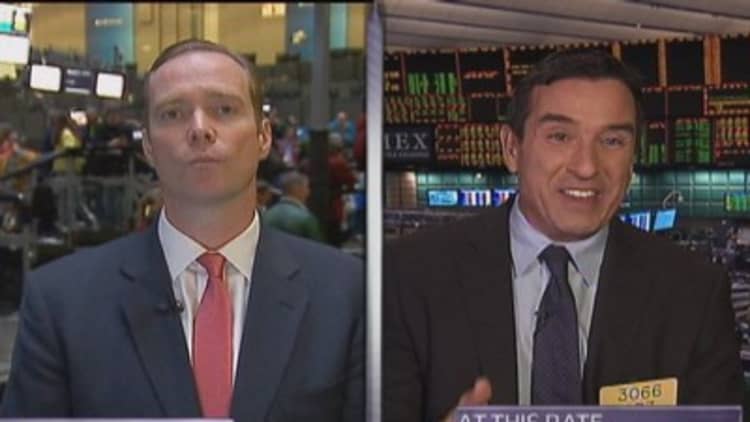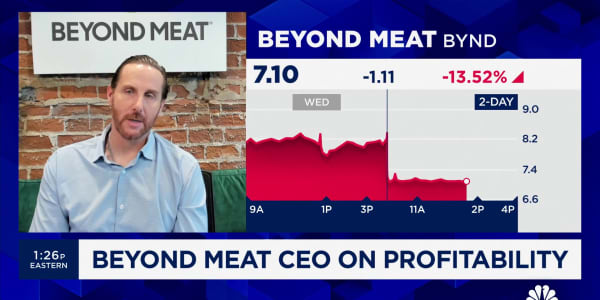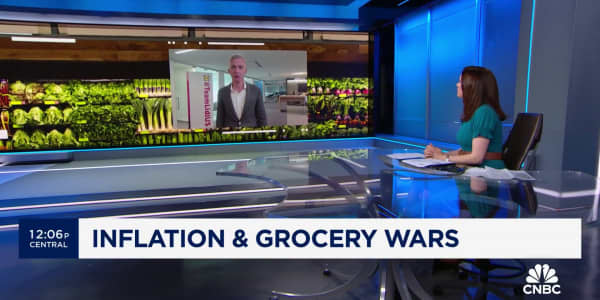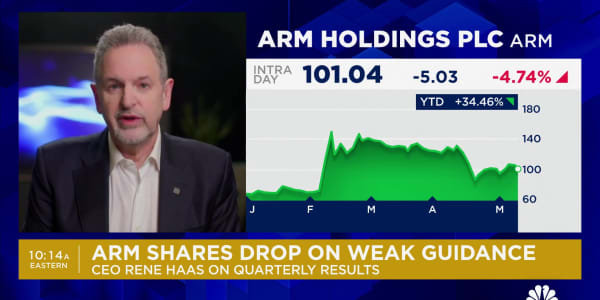The day Robert Byrd became the longest-serving senator in 2006 he declared that there were four things his fellow West Virginians believed in: "God almighty, Sears Roebuck, Carter's Little Liver Pills and Robert C. Byrd—not necessarily in that order."
We all know what God almighty and Sears Roebuck are. And if you've ever been to West Virginia, you've come across the name Robert C. Byrd—every other building in the state is named for him. But lots of people may be confused by the reference to Carter's Little Liver Pills.
Carter's Little Liver Pills were first formulated shortly after the Civil War by Samuel J. Carter. They were basically a laxative whose effectiveness was provided by the chemical bisacodyl. Nothing they did improved liver functioning at all. In 1951 the Federal Trade Commission ordered the company that made them to drop the reference to liver altogether. But the brand had been around for nearly a century. Both the name and the notion that the little white pills improved the liver stuck around long enough that Senator Byrd was using the term after his 2006 reelection.
No doubt if the pills had been removed from the market altogether, many of its users would have feared the worst. They were persuaded of the pill's effectiveness in improving their health (when all it really did was encourage bowel movements). It was, as Byrd said, next to God almighty for some people.
Quantitative easing is the new Carter's Little Liver Pill. It's the God almighty of our markets, in the minds of many. And the possible death of God—or at least the Tapering of God—expected at the end of the Fed's meeting tomorrow is making this one of the closest watched market events in quite some time. But it really shouldn't be.

And while it's all fundamentally much ado over nothing, the fear is indeed a real, destructive, and, at best, highly disruptive consequence of gross ignorance of what are always very simple monetary operations.
To understand quantitative easing you first need to understand that the Fed is a bank with two kinds of accounts that the Fed calls reserve accounts and securities accounts, which normal banks would call checking and savings accounts (or CD's). A "reserve account" is just a fancy name for a checking account. And a U.S. Treasury bill, note, or bond is just a fancy name for the dollars on deposit in those securities accounts at the Fed.
So when the Treasury spends, the Fed just adds the dollars to some bank's 'checking account' at the Fed. And when Treasury securities are sold, the Fed shifts those dollars to a 'savings account' at the Fed. Both are just dollar deposits at the same Fed, but the dollars in checking accounts are not counted in the national debt and the dollars in savings accounts are the national debt.
(Read more: What everyone gets wrong about monetary policy)
So why are reserve accounts not the debt, while securities accounts are the debt? It's all just a holdover from way back before most of you were born, when only dollars in checking accounts were legally convertible into gold at a fixed price. It's all entirely inapplicable today.
Quantitative easing is about the Fed buying Treasury securities. When you (voluntarily) sell them to the Fed, at current market prices, the Fed just shifts your dollars from your securities account to your bank's reserve account, all at the Fed. So why should that do anything to the economy? You have the same amount of dollars, and you could have shifted them in the same market place any time you wanted in any case. It didn't matter to you whether the Fed or anyone else bought them.
So by now it should be no surprise that more than one scholarly paper presented at the big central banker and academic shindig in Jackson Hole last month showed exactly that: QE doesn't actually do anything beyond "signaling" Fed intentions about the future path of Fed policy. Which is all a bit shocking, as the FOMC has clearly signaled that QE does operate through actual 'monetary channels' beyond the 'signaling' Fed hopes and prayers. In fact it's not wrong to call QE a placebo.
(See also: Almost everyone is misreading the Fed's QE study)
In fact, because the Fed believes QE does more than that, or at least doesn't let on that's all it does, market participants believe it does more as well, and acts accordingly with its investment decisions and portfolio decisions.
That is, when the Fed administered the QE placebo pill, portfolio managers investment decisions and 'indifference levels' (market prices) shifted accordingly, as did economic forecasts, including the Fed's own forecasts as more evidence they all believed in the QE Fairy.
We hear the talk continuously. The economy is on life support. It's all a sugar high that ends when the Fed takes away the punch bowl. The 'exit strategy' will be a critical, dangerous operation that could end in tears. All from a placebo!!! This is madness. History will not be kind to any of these people.
(Read more: A cauldron of hawks emerges on Fed policy)
But here we are. Seems the Fed, for whatever reason, has decided QE "isn't the proper tool" and will begin reducing its purchases. The placebo dosage will be gradually reduced. Horrors! Stocks tumble in the rush to the exit, with fears the economy can't hold up without that life support.
Not to mention bonds. Here's where the talk really gets scary. Without the Fed buying bonds they will free fall, with rates spiking like Greece. Both here and especially in Japan, where the debt is said to be 3 times ours and rates far lower.
Of course, we could see the opposite tomorrow. If the Fed flinches from the taper, stocks and bonds could rally. This too will be madness.
West Virginian livers would be just fine without Carter's pills. The economy will be fine without quantitative easing. The only thing we have to fear about the end of QE is fear about the end of QE itself.
-- by John Carney of CNBC.com and Warren Mosler. Follow Carney on Twitter @Carney
Warren Mosler is one of the founder fathers of modern monetary theory, a heterodox school of economic thinking the breaks from both classical and standard Keynesian economics. His website is MoslerEconomics.





